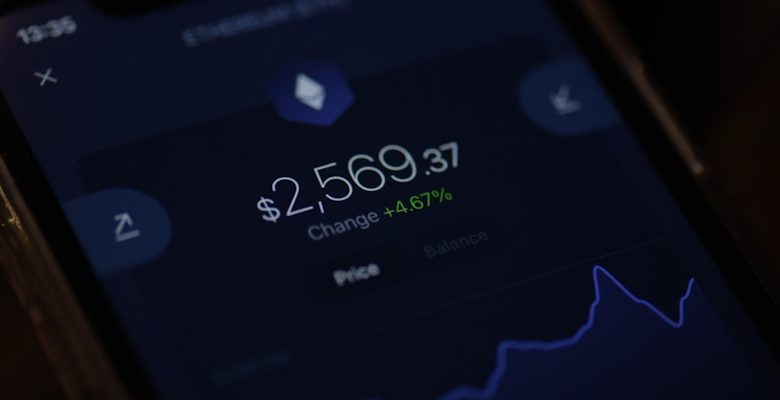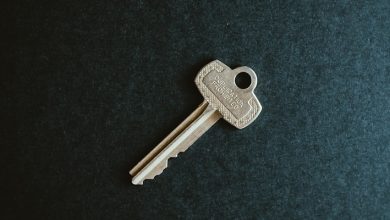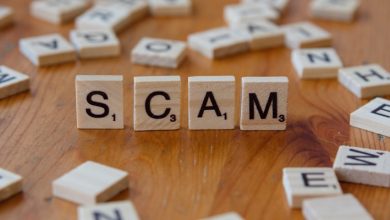Best Practices for Safeguarding Your Crypto Assets on Exchanges

- Understanding the risks of storing crypto assets on exchanges
- Tips for choosing a secure cryptocurrency exchange
- Setting up two-factor authentication for added security
- The importance of regularly monitoring your exchange accounts
- How to securely store your private keys offline
- What to do in case of a security breach on an exchange
Understanding the risks of storing crypto assets on exchanges
When considering how to safeguard your crypto assets, it is important to understand the risks associated with storing them on exchanges. While exchanges provide a convenient platform for buying, selling, and trading cryptocurrencies, they are not immune to security breaches and hacking attempts. By storing your assets on an exchange, you are essentially trusting a third party to keep them safe.
Exchanges are often targeted by hackers due to the large amounts of money involved. In the past, there have been instances where exchanges have been hacked, resulting in the loss of millions of dollars worth of cryptocurrency. Therefore, it is crucial to be aware of the risks involved and take necessary precautions to protect your assets.
One of the main risks of storing crypto assets on exchanges is the possibility of the exchange being hacked. If an exchange is compromised, there is a chance that your assets could be stolen. Additionally, exchanges may also face regulatory issues, technical problems, or even internal fraud, which could put your assets at risk.
To mitigate these risks, it is recommended to only store a small portion of your assets on exchanges for trading purposes. The majority of your holdings should be kept in a secure offline wallet, such as a hardware wallet, where you have full control over your private keys. This way, even if the exchange is hacked, your assets will remain safe.
Tips for choosing a secure cryptocurrency exchange
When selecting a secure cryptocurrency exchange, there are several important factors to consider to protect your digital assets. Here are some tips to help you choose a reliable platform:
- Look for exchanges that offer two-factor authentication (2FA) to add an extra layer of security to your account.
- Check the exchange’s reputation and reviews from other users to ensure it is trustworthy and has a good track record.
- Verify if the exchange has insurance coverage in case of a security breach or hack to safeguard your funds.
- Consider the exchange’s security features, such as cold storage for the majority of funds and regular security audits.
- Ensure the exchange complies with regulatory requirements and has proper licenses to operate in your jurisdiction.
By following these tips and doing your due diligence, you can select a secure cryptocurrency exchange that prioritizes the safety of your assets.
Setting up two-factor authentication for added security
One of the best practices for safeguarding your crypto assets on exchanges is to set up two-factor authentication (2FA) for added security. 2FA adds an extra layer of protection to your account by requiring not only a password and username but also something that only the user has on them, i.e., a piece of information only they should know or have immediately to hand – such as a physical token. This significantly reduces the risk of unauthorized access to your account, even if your password is compromised.
The importance of regularly monitoring your exchange accounts
Regularly monitoring your exchange accounts is crucial when it comes to safeguarding your cryptocurrency assets. By staying vigilant and keeping a close eye on your accounts, you can quickly identify any suspicious activity or unauthorized transactions. This proactive approach allows you to take immediate action to protect your funds before any significant damage is done.
One of the best practices for ensuring the security of your crypto assets on exchanges is to set up alerts and notifications for any account activity. By receiving real-time alerts for logins, withdrawals, or other account actions, you can stay informed and respond promptly to any potential security threats. This added layer of security can help you detect and prevent unauthorized access to your funds.
In addition to setting up alerts, regularly reviewing your account activity and transaction history is essential for monitoring your exchange accounts effectively. By regularly checking for any unfamiliar or suspicious transactions, you can quickly spot any signs of unauthorized access or fraudulent activity. This proactive approach can help you prevent potential security breaches and protect your crypto assets from theft or loss.
Furthermore, it is essential to keep your login credentials secure and regularly update your passwords to enhance the security of your exchange accounts. Using strong, unique passwords and enabling two-factor authentication can help prevent unauthorized access to your accounts. By taking these proactive security measures, you can reduce the risk of unauthorized access and protect your cryptocurrency assets from potential threats.
In conclusion, regularly monitoring your exchange accounts is a critical component of safeguarding your crypto assets. By staying vigilant, setting up alerts, reviewing account activity, and enhancing security measures, you can protect your funds and mitigate the risk of security breaches. Remember, the security of your cryptocurrency assets is in your hands, so take proactive steps to ensure their safety on exchanges.
How to securely store your private keys offline
One of the best ways to enhance the security of your crypto assets is to securely store your private keys offline. Here are some tips on how to do it:
- Use a hardware wallet: Hardware wallets are physical devices that store your private keys offline, making them less vulnerable to hacking attempts.
- Write down your private keys: Consider writing down your private keys on a piece of paper and storing it in a safe place, away from prying eyes.
- Use a secure storage device: Invest in a secure storage device, such as a USB drive or external hard drive, to store your private keys offline.
- Keep backups: Make sure to create backups of your private keys and store them in multiple secure locations to ensure you can always access your crypto assets.
By following these best practices for securely storing your private keys offline, you can better protect your crypto assets from unauthorized access and potential theft.
What to do in case of a security breach on an exchange
In case a security breach occurs on an exchange where you hold your crypto assets, it is crucial to act swiftly and decisively to protect your investments. Here are some steps you can take to mitigate the risks and safeguard your funds:
– **Notify the Exchange**: The first thing you should do is to contact the exchange immediately and report the security breach. Provide them with all the necessary information and cooperate with their investigation.
– **Change Your Passwords**: As a precautionary measure, change your passwords on the exchange and any associated accounts. Use strong, unique passwords that are not easily guessable.
– **Enable Two-Factor Authentication**: If you haven’t already done so, enable two-factor authentication (2FA) on your exchange account. This adds an extra layer of security and helps prevent unauthorized access.
– **Monitor Your Accounts**: Regularly monitor your exchange accounts for any suspicious activity. Keep an eye out for unauthorized transactions or changes to your account settings.
– **Consider Withdrawing Your Funds**: Depending on the severity of the security breach, you may want to consider withdrawing your funds from the exchange temporarily. This will help protect your assets in case of further breaches.
– **Stay Informed**: Stay informed about the security breach and follow any updates or instructions provided by the exchange. Keep an eye out for any news or announcements related to the breach.
By following these best practices, you can minimize the impact of a security breach on an exchange and protect your crypto assets from potential threats. Remember to always prioritize security and take proactive measures to safeguard your investments.



